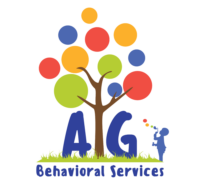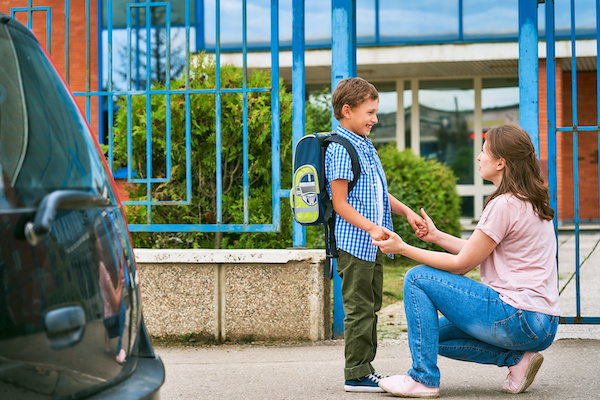How old is your child and when were they diagnosed with ASD?
My son, Simon*, is 9. He was diagnosed with Autism Spectrum Disorder when he was 2 ½ years old.
When did you sense something was different about your child?
I knew something was different when Simon was about 18 months old. We attended Mommy and Me classes together and the other children in the classes were starting to say words. Some were even speaking in sentences. Simon had just started to say “Mama” at that age, so I began to worry that his speech was behind. Another thing I noticed that was different was Simon’s inability to sit still. During some of the Mommy and Me classes, the instructor would have circle time. While the other children sat on their mother’s laps and seemed engaged with what the instructor was doing, Simon refused to sit on my lap. He would walk away and explore the room, touching whatever was of interest to him. He would also climb on top of tables and chairs, despite whatever protestations I made. Finally, I noticed Simon would not respond to his name. I would call him and he would not make eye contact with me or look up. Instead, he would stare into space or continue playing with whatever he was occupied with.
Recent Posts
- “Respond and Expand”: A Simple Way to Boost Communication in Children with Autism
- What Causes Autism? Understanding the Factors Behind ASD
- Are Autism Rates Rising?
- What Does a BCBA Do—and How Do You Become One?
- Preparing for the Upcoming School Year: A Parent’s Guide to Proactive Advocacy for Your Autistic Child
What was it like during the doctor’s visit when your child was first diagnosed with ASD?
I remember I was really looking forward to the doctor’s visit when Simon was diagnosed with ASD. We had visited the pediatrician numerous times, a speech therapist, and an occupational therapist, all of whom agreed that he had some sort of developmental delay, but would not specify what that was. I just wanted to figure out what was going on so we could tackle it and Simon could make improvements, especially with his speech.
After nearly a year of unsuccessfully trying to get an appointment with a developmental pediatrician, we decided to see a pediatric neurologist when Simon was about two years old. During the visit, the neurologist asked Simon to identify colors, numbers, and letters. Although he knew the answers to the questions, he didn’t answer her, and started to cry and tantrum. The neurologist then turned to my husband and I and said, “Has anyone suggested that Simon is on the autism spectrum?”
I was so shocked by this question that I could not form words. My husband quickly interjected and said, “No, we’ve never heard that before.” The neurologist then began rattling off terms like “ABA Therapy” and “Board Certified Behavior Analyst,” terms we had never heard before. She sent us on our way with pamphlets of information, which I could barely hold in my hand because it was shaking so badly. I did not know anything about ASD at the time, and just assumed that this diagnosis meant that Simon would never have a meaningful or fulfilling life.
How did the initial diagnosis affect your relationships with family and friends?
After Simon was diagnosed with ASD, my husband, Seth, and I isolated ourselves from our friends and family. We only told our immediate family that Simon was autistic because we were afraid that if people found out, they would judge him and not want to be around him or our family anymore. After about six months, we started to share Simon’s diagnosis with close friends. We felt that we needed to do so because it was becoming more apparent that Simon’s speech was extremely behind and we felt that we had to explain the reasoning why. To our surprise, all of our close friends were very supportive. I will never forget that one of our friends with a daughter Simon’s age named Sara said to us, “Simon is autistic? So what. Sara will always be his friend. This changes nothing.”
What services did you obtain after receiving the ASD diagnosis?
During our visit with the neurologist, she emphasized that Applied Behavior Analysis, or ABA Therapy, was extremely helpful for autistic kids. I had never heard of ABA before. However, we tried speech therapy and occupational therapy prior to Simon’s diagnosis, and his impulsivity and speech had barely improved. A friend of ours recommended AG Behavioral Services, an ABA therapy provider in our area, so we decided to give it a try.
Did ABA help your child improve?
When we initially met with AG Behavioral Services director and lead BCBA, Andrea Gonzalez, she advised us that Simon would need between twenty and thirty hours of ABA therapy per week. We initially balked at this statement, wondering how Simon could have a normal childhood if he was in therapy all day every day. However, after only one month of ABA therapy with AG Behavioral Services, we quickly changed our tune.
Due to the ABA programming that Andrea developed and her team of behavior technicians implemented, Simon began stringing words together to make a sentence. Additionally, his impulsivity improved. I could take him to a store without him running away from me and trying to grab things off the shelves or pull the fire alarm. Finally, Simon had always been resistant to physical affection. Now, when I opened my arms for a hug, he ran into them and hugged me back.
Did you ever obtain other services in addition to ABA therapy?
After Simon received ABA therapy for about a year, we decided to add speech therapy. We added speech because we noticed Simon was struggling with articulation. We also wanted to improve his conversational language because while he had no trouble asking for things he needed (i.e. “I want food” or “I want my toy”), he struggled to engage in functional or purposeful conversations. Our speech therapist collaborated with our BCBA, which was extremely helpful. Our BCBA would bring up issues she noticed, such as Simon’s inability to form the “sh” sound, and then our speech therapist would focus on these issues during speech sessions. Additionally, if Simon was experiencing a behavior issue during speech sessions, such as his tendency to engage in non-contextual vocalizations or “scripting,” our speech therapist would ask our BCBA if she could work on it.
When Simon was around five years old, he also began receiving occupational therapy (“OT”). Our reason for starting OT was because Simon was struggling with fine motor skills. For example, he had trouble writing his name, tying his shoes, and buttoning his pants. Once again, our BCBA collaborated with our OT on goals and objectives, which was extremely helpful.
How is Simon doing today?
Simon is doing extremely well. He attends public school, where he spends half of his day in a general education class, and half of the day in an LLD classroom. He loves to swim, ride his bike, build legos, and have playdates with friends. When Simon was diagnosed with ASD at 2, I never believed he would be thriving the way he is now. I could not be happier with his progress.
What advice would you give parents of children newly diagnosed with ASD?
What I want to emphasize is that as soon as your child is diagnosed with ASD, have your child begin ABA therapy if your doctor recommends it. It might seem overly intensive, especially given the hours commitment, but I fully credit the intensive work Simon did during ABA with allowing him to become the independent, social, happy kid he is now.
*Names have been changed to protect privacy. This is one family’s story: the path, therapies, and results may not be the same for everyone. The opinions shared (while many may agree) are those of the author alone.




